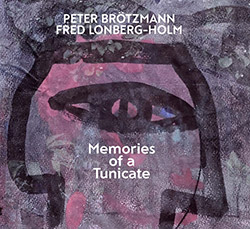
While both improvisers were in New York City for the 2019 Vision Festival, multi-reedist and European Free Improv legend Peter Brötzmann met Chicago cellist and electronics artist Fred Lonberg-Holm to record their 3rd album together, their 1st album in the studio a diverse set of incredible concentration, with Brötzmann performing on tenor saxophone, woodwind, and clarinet.
In Stock
Quantity in Basket: None
Log In to use our Wish List
Shipping Weight: 3.00 units
EU & UK Customers:
Discogs.com can handle your VAT payments
So please order through Discogs
Sample The Album:
Peter Brotzmann-tenor saxophone, woodwind, clarinet
Fred Lonberg-Holm-cello, electronics
Click an artist name above to see in-stock items for that artist.
UPC: 5902249002393
Label: Relative Pitch
Catalog ID: RPR1104
Squidco Product Code: 29360
Format: CD
Condition: New
Released: 2020
Country: USA
Packaging: Digipack
Recorded at GSI Studios,in New York City, New York, on June 12th, 2019, by Jason Rostkowski.
"Memories Of A Tunicate" is the third release and the first studio recording by Peter Brotzmann and Fred Lonberg-Holm. It was recorded in Manhattan at GSI Studios when Peter was in town for the 2019 Vision Festival. These seven pieces move between lyrical spaciousness and no holds bar flying sparks. This is a deep and focused session where they thoughtfully explore their history together."-Relative Pitch
Tunicate: "a marine invertebrate of a group which includes the sea squirts and salps. They have a rubbery or hard outer coat and two siphons to draw water into and out of the body."-Google.
"The tunicate swims and thinks when young. Eventually it settles down and attaches itself to a spot. Not needing a tail, it loses it. Not needing a brain, it eats it. But what does it remember of its adventures?"-from the liner notes

The Squid's Ear!
Artist Biographies
• Show Bio for Peter Brotzmann "Born Remscheid, Germany on 6 March 1941; soprano, alto, tenor, baritone and bass saxophones, a-clarinet, e-flat clarinet; bass clarinet, tarogato. Peter Brötzmann's early interest was in painting and he attended the art academy in Wuppertal. Being very dissatisfied with the gallery/exhibition situation in art he found greater satisfaction playing with semi-professional musicians, though continued to paint (as well as retaining a level of control over his own records, particularly in record sleeve/CD booklet design). In late 2005 he had a major retrospective exhibition jointly with Han Bennink - two separate buildings separated by an inter-connecting glass corridor - in Brötzmann's home town of Remscheid. Self-taught on clarinets, he soon moved to saxophones and began playing swing/bebop, before meeting Peter Kowald. During 1962/63 Brötzmann, Kowald and various drummers played regularly - Mingus, Ornette Coleman, etc. - while experiencing freedoms from a different perspective via Stockhausen, Nam June Paik, David Tudor and John Cage. In the mid 1960s, he played with American musicians such as Don Cherry and Steve Lacy and, following a sojourn in Paris with Don Cherry, returned to Germany for his unorthodox approach to be accepted by local musicians like Alex von Schlippenbach and Manfred Schoof. The trio of Peter Brötzmann, Peter Kowald and Sven-Ake Johansson began playing in 1965/66 and it was a combination of this and the Schoof/Schlippenbach Quintet that gave rise to the first Globe Unity Orchestra. Following the self-production of his first two LPs, For Adolphe Sax and Machine gun for his private label, BRÖ, a recording for Manfred Eicher's 'Jazz by Post' (JAPO) [Nipples], and a number of concert recordings with different sized groups, Brötzmann worked with Jost Gebers and started the FMP label. He also began to work more regularly with Dutch musicians, forming a trio briefly with Willem Breuker and Han Bennink before the long-lasting group with Han Bennink and Fred Van Hove. As a trio, and augmented with other musicians who could stand the pace (e.g. Albert Mangelsdorff on, for example, The Berlin concert), this lasted until the mid-1970s though Brötzmann and Bennink continued to play and record as a duo, and in other combinations, after this time. A group with Harry Miller and Louis Moholo continued the trio format though was cut short by Miller's early death. The thirty-plus years of playing and recording free jazz and improvised music have produced, even on just recorded evidence, a list of associates and one-off combinations that include just about all the major figures in this genre: Derek Bailey (including performances with Company (e.g. Incus 51), Cecil Taylor, Fred Hopkins, Rashied Ali, Evan Parker, Keiji Haino, Misha Mengelberg, Anthony Braxton, Marilyn Crispell, Andrew Cyrille, Phil Minton, Alfred 23 Harth, Tony Oxley. Always characterised as an energy player - and the power-rock setting of Last Exit with Ronald Shannon Jackson, Sonny Sharock and Bill Laswell, or his duo performances with his son, Casper, did little to disperse this conviction - his sound is one of the most distinctive, life-affirming and joyous in all music. But the variety of Brötzmann's playing and projects is less recognised: his range of solo performances; his medium-to-large groups and, in spite of much ad hoc work, a stability brought about from a corpus of like- minded musicians: the group Ruf der Heimat; pianist Borah Bergman; percussionist Hamid Drake; and Die like a dog, his continuing tribute to Albert Ayler, with Drake, William Parker and Toshinori Kondo. Peter Brötzmann continues a heavy touring schedule which, since 1996 has seen annual visits to Japan and semi-annual visits to the thriving Chicago scene where he has played in various combinations from solo through duo (including one, in 1997, with Mats Gustafsson) to large groups such as the Chicago Octet/Tentet, described below. He has also released a number of CDs on the Chicago-based Okka Disk label, including the excellent trio with Hamid Drake and the Moroccan Mahmoud Gania, at times sounding like some distant muezzin calling the faithful to become lost in the rhythm and power of the music. The "Chicago Tentet" was first organized by Brötzmann with the assistance of writer/presenter John Corbett in January 1997 as an idea for a one-time octet performance that included Hamid Drake and Michael Zerang (drums), Kent Kessler (bass) and Fred Lomberg-Holm (cello), Ken Vandermark and Mars Williams (reeds), and Jeb Bishop (trombone). The first meeting was extremely strong and warranted making the group an ongoing concern and in September of that same year the band was expanded to include Mats Gustafsson (reeds) and Joe McPhee (brass) as permanent members (with guest appearances by William Parker (bass), Toshinori Kondo (trumpet/electronics), and Roy Campbell (trumpet) during its tenure) - all in all a veritable who's who of the contemporary improvising scene's cutting edge. Though the Tentet is clearly led by Brötzmann and guided by his aesthetics, he has been committed to utilizing the compositions of other members in the ensemble since the beginning. This has allowed the band to explore an large range of structural and improvising tactics: from the conductions of Mats Gustafsson and Fred Lonberg-Holm, to the vamp pieces of Michael Zerang and Hamid Drake, to compositions using conventional notation by Ken Vandermark and Mars Williams, to Brötzmann's graphic scores - the group employs almost every contemporary approach to composing for an improvising unit. This diversity in compositional style, plus the variety in individualistic approaches to improvisation, allows the Tentet to play extremely multifaceted music. As the band moves from piece to piece, it explores intensities that range from spare introspection to all out walls of sound, and rhythms that are open or free from a steady pulse to those of a heavy hitting groove. It is clear that the difficult economics of running a large band hasn't prevented the group from continuing to work together since its first meeting. Through their effort they've been able to develop an ensemble sound and depth of communication hard to find in a band of any size or style currently playing on the contemporary music scene." ^ Hide Bio for Peter Brotzmann • Show Bio for Fred Lonberg-Holm "Fred Lonberg-Holm (born 1962) is an American cellist based in Chicago. He relocated from New York City to Chicago in 1995. Lonberg-Holm is most identified with playing free improvisation and free jazz. He is also a composer of concert works. As a session musician and arranger, he is credited on many rock, pop, and country records. Lonberg-Holm currently leads the Valentine Trio, with Jason Roebke (bass) and Frank Rosaly (drums). This jazz trio performs original compositions as well as tunes by both jazz composers (e.g. Sun Ra) and pop songwriters (e.g. Jeff Tweedy, Syd Barrett). The group released its first album Terminal Valentine, in 2007, which was reviewed by AllAboutJazz critic Nils Jacobson. He coordinates and directs performances of his Lightbox Orchestra, an improvising ensemble with a flexible, ever-changing membership. Lonberg-Holm does not play an instrument in this group, but rather conducts its non-idiomatic improvisations via the "lightbox" and by holding up handwritten signs. The lightbox contains a light bulb for each musician which Lonberg-Holm switches on or off to suggest when they should play. Collective groups of which Lonberg-Holm is a member include Terminal 4 who released an album, in 2003, called When I'm Falling that received four and a half stars, and AMG Album Pick by Allmusic, and it was reviewed by Allmusic's Joslyn Layne, The Boxhead Ensemble, Pillow, the Lonberg-Holm/Kessler/Zerang trio (with Kent Kessler and Michael Zerang), and the Dörner/Lonberg-Holm duo (with Axel Dörner). Among groups led by other people, he is a member of the Vandermark 5, the Joe McPhee Trio, the Peter Brötzmann Chicago Tentet, Keefe Jackson's Fast Citizens, and Ken Vandermark's Territory Band. When he lived in New York, Lonberg-Holm frequently collaborated with the rock group God Is My Co-Pilot pianist and composer Anthony Coleman as well as multi-instrumentalist Paul Duncan of Warm Ghost. In Chicago, he has worked with Jim O'Rourke, Bobby Conn (on "Llovessonngs" [1999] and "The Golden Age" [2001]), The Flying Luttenbachers, Lake Of Dracula, Wilco, Rivulets, Mats Gustafsson, Sten Sandell, Jaap Blonk, John Butcher, and a great many others. Lonberg-Holm's concert works have been premiered by William Winant, Carrie Biolo, the Austin New Music Co-Op, Subtropics Ensemble, Duo Atypica, the Schanzer/Speach Duo, New Winds, Paul Hoskin, Kevin Norton, the E.S.P. Ensemble, and others. His scores for dance have been performed at the Brooklyn Academy of Music and Dance Theater Workshop as well as many other venues. He is a former composition student of Anthony Braxton and Morton Feldman. He performed improvised music in the role of a troubled composer who finds inspiration in the love of a couple he spots on the street in a short film for the Playboy channel." ^ Hide Bio for Fred Lonberg-Holm
7/15/2025
Have a better biography or biography source? Please Contact Us so that we can update this biography.
7/15/2025
Have a better biography or biography source? Please Contact Us so that we can update this biography.
Track Listing:
1. Doliolid 12:01
2. Octacnemidae 10:33
3. Pyrosomes 9:28
4. Salp 4:32
5. Thalicia 5:51
6. Aplousobranchia 12:19
7. Stolidobranchia 8:10
Improvised Music
Free Improvisation
Jazz
Electro-Acoustic
Electro-Acoustic Improv
European Improvisation, Composition and Experimental Forms
Chicago Jazz & Improvisation
Duo Recordings
Peter Brotzmann
Top Sellers for 2020 by Customer Sales
Search for other titles on the label:
Relative Pitch.

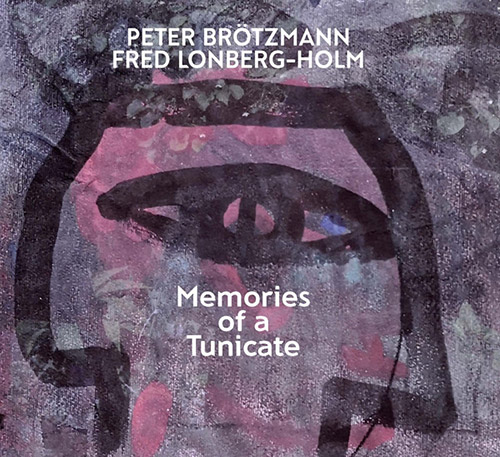
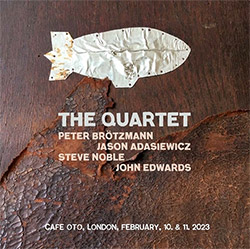

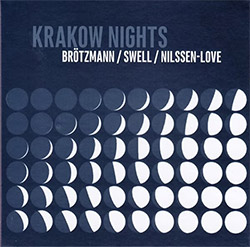
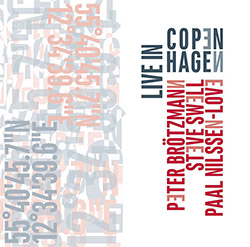
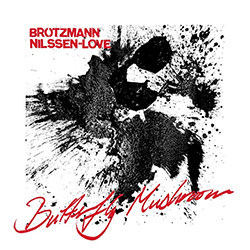
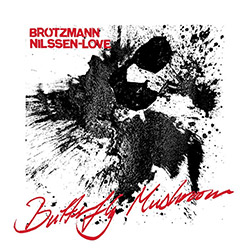

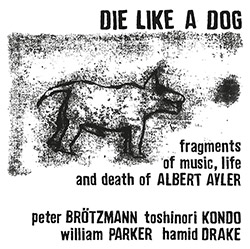



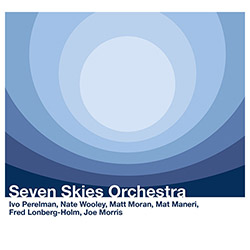

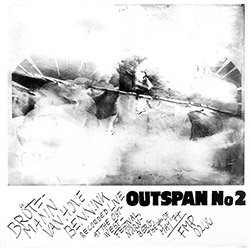


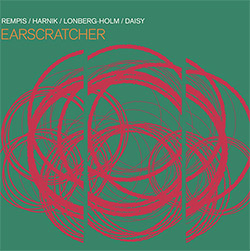
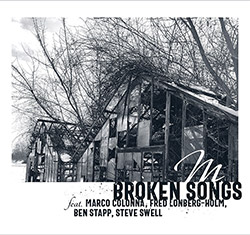



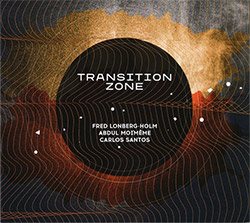
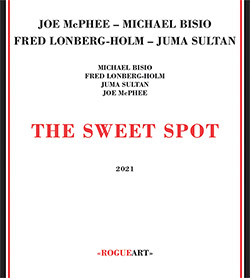
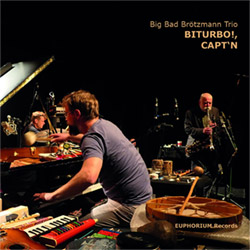
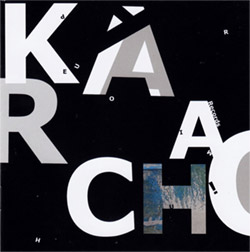





![BlueRing Improvisers: Materia [2 CDs]](https://www.teuthida.com/productImages/misc4/36513.jpg)








![Wheelhouse (Rempis / Adasiewicz / McBride): House And Home [VINYL]](https://www.teuthida.com/productImages/misc4/36462.jpg)
![+DOG+: The Light Of Our Lives [2 CDs]](https://www.teuthida.com/productImages/misc4/36009.jpg)


![Parker, Evan / Jean-Marc Foussat: Insolence [VINYL]](https://www.teuthida.com/productImages/misc4/36398.jpg)










![Deupree, Jerome / Sylvie Courvoisier / Lester St. Louis / Joe Morris: Canyon [2 CDs]](https://www.teuthida.com/productImages/misc4/36404.jpg)



![Eventless Plot | Haarvol: The Subliminal Paths [CASSETTE + DOWNLOAD]](https://www.teuthida.com/productImages/misc4/36232.jpg)










![Eventless Plot | Francesco Covarino: Methexis [CASSETTE + DOWNLOAD]](https://www.teuthida.com/productImages/misc4/36231.jpg)



![Das B (Mazen Kerbaj / Mike Majkowski / Magda Mayas / Tony Buck): Love [VINYL]](https://www.teuthida.com/productImages/misc4/36329.jpg)


![Eternities: Rides Again [CASSETTE]](https://www.teuthida.com/productImages/misc4/36247.jpg)
![Lopez, Francisco: Untitled (2021-2022) [2 CDs]](https://www.teuthida.com/productImages/misc4/36438.jpg)






![Money : Money 2 [2 CDs]](https://www.teuthida.com/productImages/misc4/35894.jpg)




![Klinga, Erik: Elusive Shimmer [VINYL]](https://www.teuthida.com/productImages/misc4/36258.jpg)
![CHANGES TO blind (Phil Zampino): Volume 9 - I Wave on a Fine Vile Mist [CD + DOWNLOAD]](https://www.teuthida.com/productImages/misc4/36061.jpg)

![Wallmart / Rubbish: Asset Protection [split CD]](https://www.teuthida.com/productImages/misc4/35900.jpg)


![+Dog+: The Family Music Book Vol. 5 [2 CDs]](https://www.teuthida.com/productImages/misc4/35897.jpg)
![Kuvveti, Deli : Kuslar Soyledi [CASSETTE w/ DOWNLOAD]](https://www.teuthida.com/productImages/misc4/36107.jpg)

![Brown, Dan / Dan Reynolds: Live At The Grange Hall [unauthorized][CASSETTE]](https://www.teuthida.com/productImages/misc4/36245.jpg)








![Palestine, Charlemagne / Seppe Gebruers: Beyondddddd The Notessssss [VINYL]](https://www.teuthida.com/productImages/misc4/36206.jpg)
![Palestine, Charlemagne / Seppe Gebruers: Beyondddddd The Notessssss [NEON GREEN VINYL]](https://www.teuthida.com/productImages/misc4/36207.jpg)

![Laubrock, Ingrid: Purposing The Air [2 CDs]](https://www.teuthida.com/productImages/misc4/35639.jpg)

![Yoko, Ono / The Great Learning Orchestra: Selected Recordings From Grapefruit [2 CDs]](https://www.teuthida.com/productImages/misc4/35841.jpg)









![Zorn, John / JACK Quartet: The Complete String Quartets [2 CDs]](https://www.teuthida.com/productImages/misc4/35609.jpg)

![Lonsdale, Eden: Dawnings [2 CDs]](https://www.teuthida.com/productImages/misc4/35480.jpg)



![Sorry For Laughing (G. Whitlow / M. Bates / Dave-Id / E. Ka-Spel): Rain Flowers [2 CDS]](https://www.teuthida.com/productImages/misc4/35985.jpg)

![Rolando, Tommaso / Andy Moor : Biscotti [CASSETTE w/ DOWNLOADS]](https://www.teuthida.com/productImages/misc4/36106.jpg)


![Electric Bird Noise / Derek Roddy: 8-10-22 [CD EP]](https://www.teuthida.com/productImages/misc4/35970.jpg)








![Elephant9 : Mythical River [VINYL]](https://www.teuthida.com/productImages/misc4/34624.jpg)



![Elephant9 with Terje Rypdal: Catching Fire [VINYL 2 LPs]](https://www.teuthida.com/productImages/misc4/35355.jpg)
![Deerlady (Obomsawin, Mali / Magdalena Abrego): Greatest Hits [VINYL]](https://www.teuthida.com/productImages/misc4/34876.jpg)







![Surplus 1980: Illusion of Consistency [CD]](https://www.teuthida.com/productImages/misc4/35069.jpg)
![Staiano, Moe: Away Towards the Light [VINYL + DOWNLOAD]](https://www.teuthida.com/productImages/misc4/35037.jpg)
![Coley, Byron: Dating Tips for Touring Bands [VINYL]](https://www.teuthida.com/productImages/misc4/17906.jpg)

![Lost Kisses: My Life is Sad & Funny [DVD]](https://www.teuthida.com/productImages/misc4/lostKissesDVD.jpg)